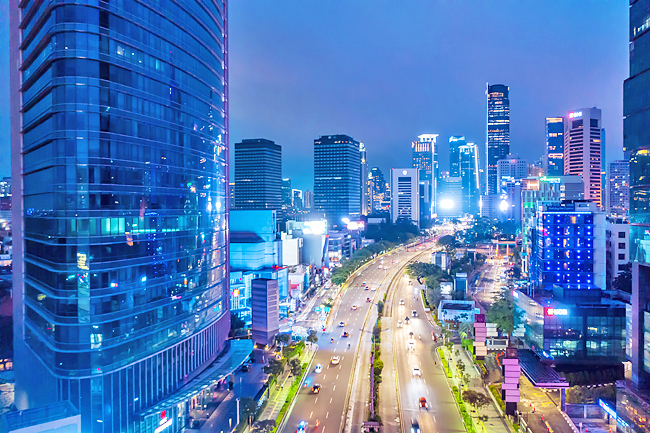JAKARTA (XINHUA) – It has been three months for Angga Mahardika, 32, to do round-trip driving from his house in Bekasi, West Java province, Indonesia, to his office in capital city Jakarta every day with his new electric vehicle (EV), the China-made Wuling Air EV.
For him, driving with EV not only gives him a quieter and more convenient driving experience on the road, but also enables him to save more money.
“Before having Air EV, I usually spent around IDR2 million (USD131.3) per month only for fuel, but now I just need to spend only IDR800,000 (USD52.54) for charging,” Angga told Xinhua in a recent meet-up.
He said he chose the Chinese EV because it was the cheapest modernly designed EV he could find in Indonesia. The four-seater hatchback has a relatively smaller body compared to other EV cars.
“Air EV is affordable, and I think many middle-class people can afford to buy it. Why should we buy more expensive cars that cost us more and cause more pollution?” Angga said.
The EV penetration in Indonesia is indeed seeing significant growth, with Chinese EVs getting more popular, strictly competing with EVs produced by Japan and South Korea.

According to data from the Association of Indonesia Automotive Industries (GAIKINDO), the sales of EVs in Southeast Asia’s largest economy have significantly increased in the past three years. In 2020, only 125 units of EVs from any brand were sold. In 2021, the sales climbed to 687 units and kept increasing in 2022 with 10,327 units. In the first semester of 2023, the country recorded 5,850 units of EVs sold.
The Indonesian government has been aggressively promoting and pushing the sales of EVs to the people for daily use. This is part of the country’s efforts to transform into a cleaner energy, particularly following the recent heavy pollution in Jakarta.
To make it more affordable for its people, the Indonesian government has provided subsidies that cover up to 200,000 electric motorcycles and 35,900 electric cars, as well as a 10 per cent added value tax (PPN) incentive for purchasing electric cars and buses.
Angga, for example, bought his Air EV for IDR284 million (USD18,653). The price had been deducted by a subsidy of IDR21 million (USD1,379).
In 2022, GAIKINDO data showed that China’s Wuling Motors held 78 per cent of EV market share in Indonesia, followed by South Korea’s Hyundai Motor with 20 per cent and Japan’s Toyota with 1.4 per cent. In the annual GAIKINDO Indonesia International Auto Show (GIIAS) held in Tangerang from August 10 to 20, a range of Chinese electric car models dominated the floor.
At least seven new variants of the Chinese EVs were introduced during the show, including Neta V by automaker Hozon Auto Manufacturing, Seres E1 by Sokonindo Automobile, and EV Multi-Purpose Vehicle (MPV) Maxus Mifa 9 under Indomobil Group. Seres E1 became the cheapest EV promoted at GIIAS, costing IDR189 million (USD12,413) per unit.





